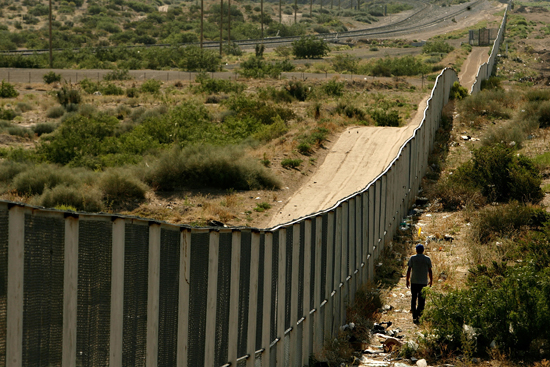George Reed & Chris Liu-Beers, Raleigh News & Observer
RALEIGH — Across North Carolina, nearly everyone agrees that the current immigration system is broken. So if the system is broken, why do we continue pouring money into it? Instead, we should take this historic opportunity to fix it.
Many politicians are saying that they want to address the root causes of our immigration situation, but they go on to talk only about increased enforcement. Of course, we are a nation of laws and the rule of law should be upheld. But experience and common sense show us that merely building a bigger wall won’t work because enforcement alone does not deal with the root causes. If we’re going to address the causes of immigration, we need to have a serious conversation about factors like U.S. trade policy (including the North American Free Trade Agreement) and the lack of opportunity in many “sending” countries.
When NAFTA went into effect in the mid-1990s, its unfair trade provisions allowed U.S.-subsidized corn to flood the Mexican market, bankrupting nearly 2 million Mexican corn farmers virtually overnight. This major economic disaster had a big impact on immigration into the U.S. from Mexico.
The bottom line is that Congress and the president basically have three options for addressing immigration — and only one of them will work.
1) Allow the current immigration mess to deteriorate further, a prospect that frustrates the vast majority the American people.
2) Hold out for the ugly fantasy that we are going to get rid of 12 million undocumented immigrants, a prospect as unrealistic as it is un-American.
3) Move forward with a comprehensive plan that restores the rule of law, gets people in the system, makes employers play by the rules and creates a stable, sustainable and legal system of immigration.
Since we’re not going to deport 12 million people, we need comprehensive immigration reform that includes a path to citizenship in order to assimilate new Americans. We already know that building a bigger wall won’t help. What we need is an orderly system that works for both immigrants and our country.
Comprehensive reform is the only practical and sensible way to ensure that all workers are here legally, that unscrupulous employers cannot undercut their honest competitors, that fairness is restored to the labor market, and enforceability and justice are restored to the rule of law. It will lift wages for workers, restore tax fairness and create a level playing field for law-abiding employers.
Despite the clamoring of a noisy minority, polling data consistently shows that American voters support comprehensive reform over an enforcement-only approach. A recent national poll found that when voters are given the details of comprehensive reform, 86 percent support Congress passing comprehensive reform, while only 7 percent strongly oppose the plan.
So what should comprehensive immigration reform look like? The solution to our current broken system must include:
• The reunification of families and preservation of our family immigration system;
• A way for people to get in the system with legal status so they get on a path to citizenship, learn English and become part of society;
• A coherent and fair legal system that respects the value of due process;
• A logical, viable system for regulating legal immigration; and
• Effective, humane border and interior enforcement that respects everyone’s rights and keeps communities safe without forcing people into society’s shadows.
We know that Americans do not want families getting torn apart. We do not want our workers getting abused. We do not want a trap door in the minimum wage. The American people want a practical, common-sense solution that’s fair to everyone.
As members of the faith community, we believe that we have the opportunity to fix our nation’s broken immigration system and uphold our deepest values at the same time. The command to welcome the stranger
echoes in our ears as immigrant families and workers are living in a state of fear due to increased raids, deportations and anti-immigrant sentiment. Our religious traditions call us to love our neighbor as ourselves, and we believe this applies to immigrants as much as anyone else.

